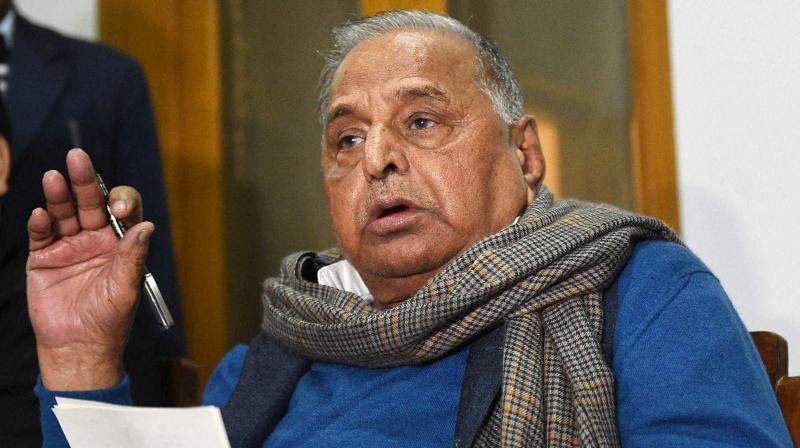Crisis in Samajwadi Party looks cyclic

Hyderabad: India is witnessing an intense struggle for control of the ‘bicycle’ once again, after 22 years.
The present crisis in the Samajwadi Party, where two groups are striving hard for getting recognition as well as the election symbol ‘bicycle’ from the Election Commission is eerily similar to the one that rocked the Telugu Desam in August 1995.
That crisis led to the EC allotting the “original party” status and the poll symbol - bicycle - to the faction headed by N. Chandrababu Naidu. The rest, as they say, is history.
At that time, the EC, with T.N. Sheshan at its helm, had ruled in Mr Naidu’s favour after thoroughly examining the claims and counterclaims submitted by both factions.
There was no need for the EC to take an immediate decision on the claims — there were no elections on the horizon when the revolt rocked the TD. Elections to the Lok Sabha were held in May 1996 while the EC had, by December 1995, announced its decision that the original TD was with Mr Naidu and his faction had the right to the party symbol.
Though the symbols of both TD and SP, bicycle, are the same, this time around, the EC will not be able to take a decision in favour of any one particular party as quickly as it did in 1995.
Elections for the Uttar Pradesh Assembly are just a few weeks away and there is no question of the EC announcing its verdict before that due to paucity of time. An inquiry into the claims is yet to start.
“It may take a minimum of five to six months for the Election Commission to decide on the claims in Samajwadi Party,” said K.J. Rao, former adviser to the EC.
Like it did with the TD, the EC needs to allot some dates for conducting hearings on the claims, it also has to take the views of the majority of legislators and politburo members besides district and block-level units.
Also, counsels for both the groups have to be given the chance to forward their arguments. Besides, the EC may seek sworn affidavits by the leaders of the two groups and then take a final decision.
“It’s a time-consuming process that cannot be avoided. It is likely that the party poll symbol may be frozen temporarily till both the groups help the EC decide which group should get it. In the interim, the EC would allot temporary reserved symbols to both the groups to contest in the coming Assembly elections,” said a former Election Commissioner who didn’t want to be named.
The SP is in power in Uttar Pradesh — the government being headed by Chief Minister Akhilesh Yadav while his father Mulayam Singh Yadav was the national president of the party till he was dethroned recently.
In 1995, when the Naidu-led group in the TD revolted against the party’s founder-president N.T. Rama Rao and removed him from the posts of both party president and Chief Minister, NTR had written to the Governor saying that he wanted to wind up the party in his capacity as the party president.
Before NTR could do that, Mr Naidu convened a general body meeting of the party in Basant Talkies. A resolution was passed removing NTR from the party president’s post.
When NTR met the Governor, he came to know that he had been removed as party president.
Mr Naidu had shrewdly filed a petition with the EC, laying claim over the party symbol and seeking ‘original party status’.
Based on this, the EC served notices to the NTR-led group. Following a series of hearings, arguments and counter-arguments, the EC finally decided in Mr Naidu’s favour.
At that time, Mr Naidu had requested the then TD MP Renuka Chowdary, who was suspended by NTR earlier, to help him deal with the crisis, promising her return to the party.
Ms Chowdary obliged; she used her clout in Delhi and played a key role in the EC’s decision.

